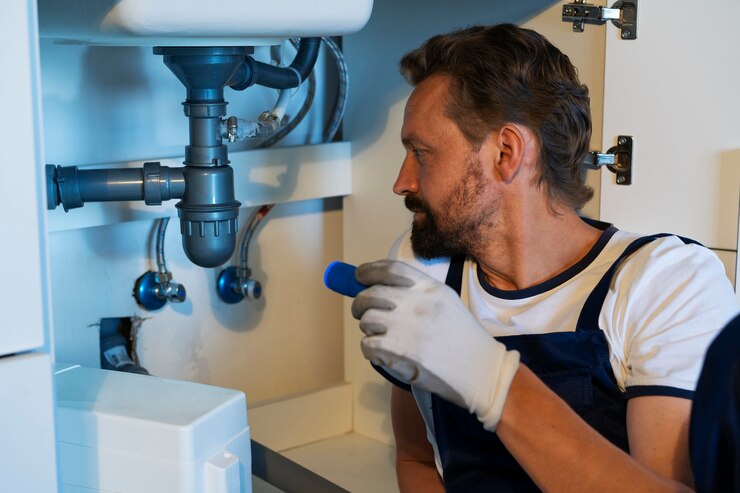Embarking on the journey to establish your plumbing company can be as daunting as exciting. From securing the right tools to understanding complex legalities, the road to success requires careful planning and execution. With the proper guidance and a robust toolkit of resources, prospective entrepreneurs can navigate the industry’s intricacies and carve out their niche in the market. Read below to uncover the fundamental aspects of launching a prosperous plumbing enterprise.
Building Relationships with Suppliers and Contractors
Fostering strong, reliable connections with suppliers and contractors is at the heart of successful plumbing businesses. Suppliers not only provide necessary materials but can also offer valuable industry insights and trade discounts. Prioritizing relationships with suppliers means you might secure favorable payment terms or be among the first to know of innovative products entering the market.
Contractors and other trade professionals are integral to the plumbing industry ecosystem. Building a network of skilled subcontractors you can depend on during busy periods or for specialized tasks will help you meet varying client demands without compromising service quality.
Reputation is the currency in the trade industry. Thus, selecting suppliers and contractors with a solid track record can bolster your business’s reputation. Conducting a thorough people search and vetting potential collaborators for reliability, quality, and business ethics before establishing partnerships is wise.
The ability to negotiate effectively can be beneficial in striking deals that are advantageous for both parties. Nurture open communication channels, be aware of industry trends, and be prepared to pivot or compromise as needed. The strength of these relationships can make or break your operations during challenging times or when unexpected opportunities arise.
Acquiring the Right Tools and Technology for Plumbers
In the plumbing business, the quality of your work heavily relies on the tools and technology you employ. Investing in high-grade, durable tools can improve the efficiency of your services and manifest in the quality of your workmanship. Evaluate the essentials needed for various jobs, such as pipe wrenches, cutters, and inspection cameras.
Technology also plays an indispensable role in modern plumbing. Utilizing advanced software for job scheduling, invoicing, and customer relationship management can streamline operations and enhance customer satisfaction. Embracing technology such as trenchless repair equipment or thermal imaging cameras can differentiate your services by offering less invasive and more accurate diagnostics.
When it comes to stocking up on hardware, it’s essential to choose reputable suppliers that provide reliable equipment and parts. Establishing a partnership with suppliers like PlumbersStock can ensure you get competitive prices for quality supplies, thus maintaining cost-efficiency while delivering exceptional service.
Maintaining your tools and regularly updating technology is equally important as acquiring it. Setting aside funds for tool maintenance and potential replacement will help avoid downtime or subpar performance. Moreover, keeping abreast of the latest technological advancements in the industry can help you stay competitive and cater to a tech-savvy clientele.
Navigating Legal Requirements and Plumbing Certifications
Understanding and adhering to legal requirements is non-negotiable for any legitimate plumbing business. Depending on your location, this could mean passing specific exams, acquiring different certifications, and staying up-to-date with the industry’s best practices. Proper licensing provides credibility and ensures your services meet standardized safety and quality benchmarks.
The plumbing industry is regulated to protect public health and safety. Therefore, compliance with building codes and regulations is mandatory. Staying informed about changes in laws or codes is essential, as violations can result in hefty fines or even business closure. Regular training for you and any employees will help maintain high compliance and competence.
Businesses must also comply with tax laws, including federal, state, and local taxes. Consulting with a tax professional can ease the process and prevent costly mistakes. It’s also vital to keep detailed records of all transactions and regulatory paperwork in order, as these documents are important for legal compliance and business analysis.
Lastly, ensuring that your business practices comply with environmental regulations is often essential to the plumbing industry. This might entail proper waste disposal, water conservation methodologies, and the use of eco-friendly materials, which are becoming increasingly important to consumers.
Altogether, launching a plumbing business demands a careful balance of strategic supplier relationships, advanced tools and technology, and rigorous adherence to legal and regulatory standards. Success in this field hinges on meticulous planning, continuous learning, and adapting to industry trends to deliver exceptional service and build a strong, reputable brand.






0 Comments